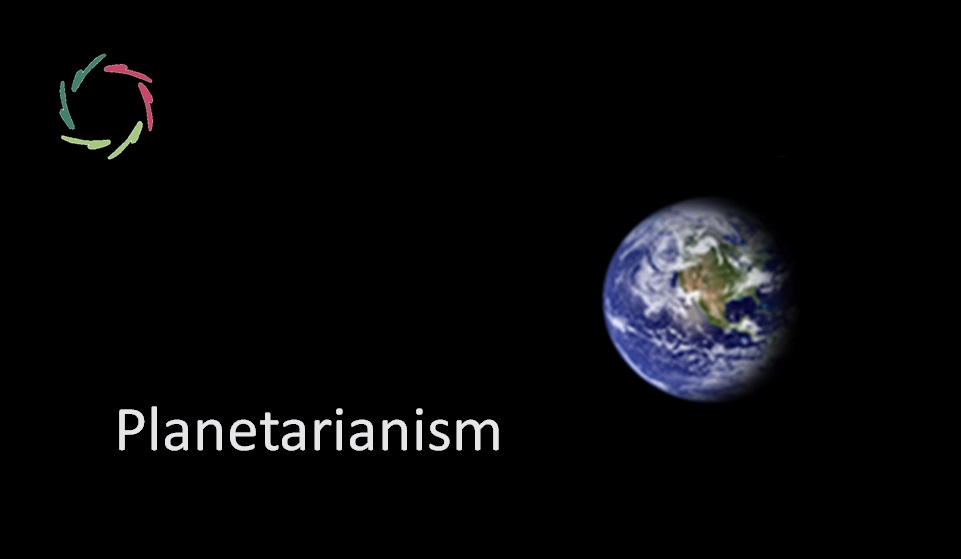Planetarianism

Own people first. My people = everybody. The aim of planetarianism is to unite without diminishing diversity ― thus to strive for one human culture with due respect for regional cultures.
For this, we seek growing embeddedness in a philanthropic ecosystem of giving and taking.
For a PowerPoint about the growing project of Planetarianism, click here.
Future humanism
Planetarianism is the humanism of the future, taking into account the total person. Thus, it fundamentally transcends present-day conceptual humanism, involving a specific and urgent responsibility.
This is not only philosophy. Five concrete projects are worked on, each of them based on the same idea of future humanism:
- DailyTwinkles ― bringing people together worldwide through social media
- Empathy for Health ― world congress about the core of human being in healthcare
- People of this Planet ― relieving poverty one circle a time in congruence
- Lisa non-profit ― making Lisa available to the whole of humanity
- Human-A.I. value alignment ― with the values of total-person humanism
Note that these projects are mutually enforcing. For instance, through the DailyTwinkles project, we can discern what is profoundly important transculturally, which is crucial for really attaining human-A.I. value alignment. The latter may ameliorate the services of Lisa, therefore also how Lisa can be a better aid for bringing empathy to healthcare. Better healthcare is an important factor in relieving poverty worldwide ‘from the inside out,’ which is something the DailyTwinkles community can comment upon and co-operate truly efficiently.
The synthesis is more than the sum of the elements.
In relation to globalism
Globalism is about making global connections to find and develop more opportunities for economic growth. It may readily lead to more inegalitarianism. Through globalism, people with fewer opportunities or resilience can get exploited in fierce global competition. They must be content with less exciting and less paying jobs.
Contrary to this, planetarianism is about each individual being aware of the worthiness of each other individual on the planet ― no exception. This includes any child dying of hunger.
Planetarianism is also about profoundly bringing together people from different cultures.
Unity in differences
The aim is not a one-size-fits-all culture. On the contrary, looking at some issues from different cultural standpoints can enhance one’s possibility to look through local elements. Thereby, one can more profoundly value one’s culture, work on deepening one’s cultural commitment, and diversify it to ever new combinations.
There will remain many exciting possibilities forever.
Depth is crucial
People recognize depth as the core of their own culture. The most culturally valorized exponents frequently lie close to this core, deeply shaping it. Yet, with a broadened view, people also may strangely recognize profound levels in other cultures.
The most beautiful poems touch something profoundly universal while giving attention to something subtly concrete.
Close-circle empathy
Human empathy is an outgrowth of animal empathy. This is, for instance, what exists between mammalian parents and their offspring ― or a small group of kindred. This is close-circle empathy.
In many ways, one can see this principle in how people behave. This is valuable, but since we ‘rule the planet,’ more is needed.
Beyond close-circle toward planetarian empathy
In planetarianism, empathy goes much broader. One challenge is not to bring this in competition with close-circle empathy.
Much support is needed to open people to planetarian empathy. This requires many close contacts (such as through social media) in which human depth is valued. In awareness of the involved challenge, this is the aim of DailyTwinkles to Planetarianism.
If you are interested to co-operate, please let us know at planetarianism@aurelis.org.


